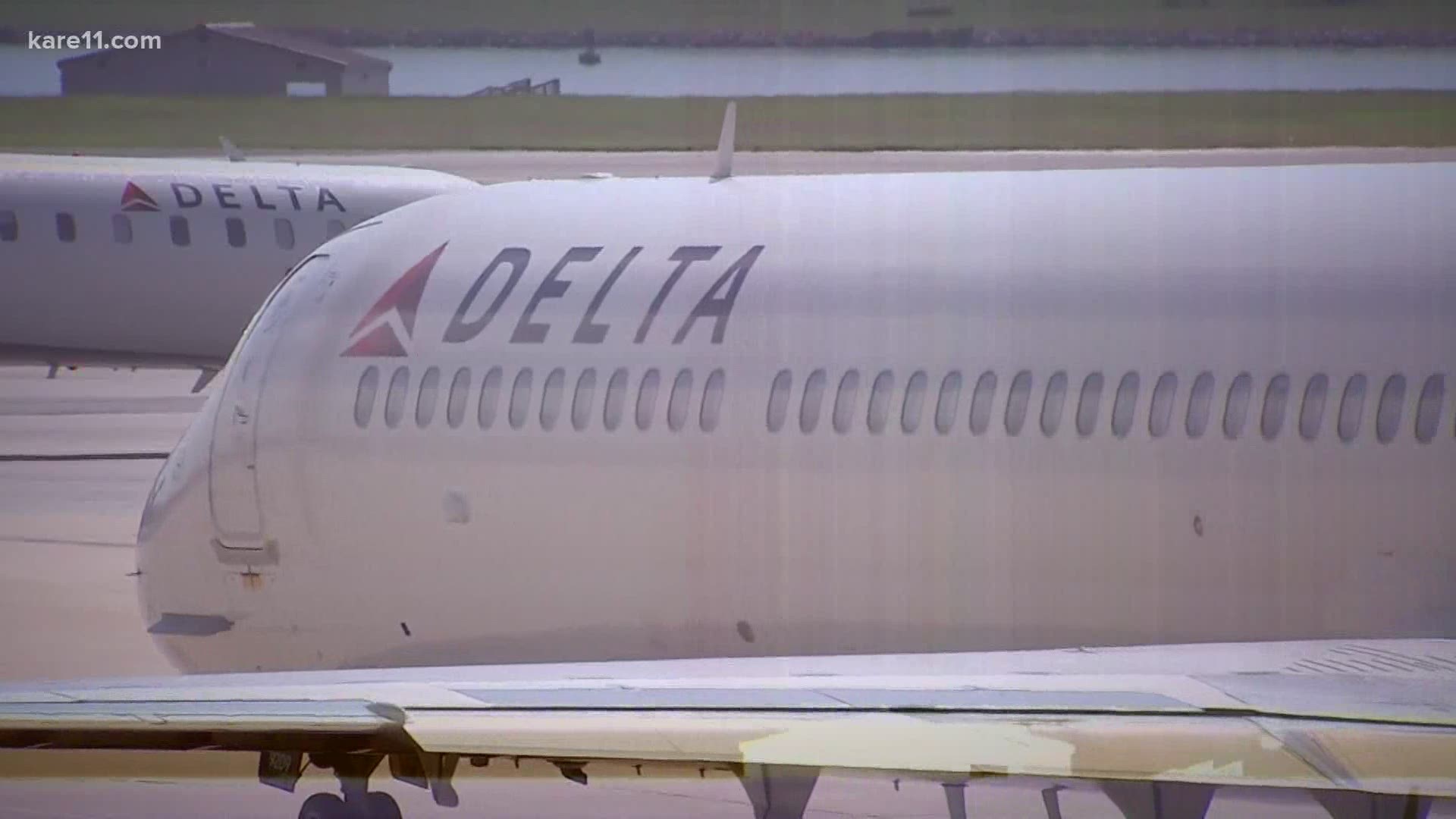MINNEAPOLIS — 5.7 billion dollars. That's the net loss Delta Air Lines announced it faced in its second quarter. According to CNBC, that is the biggest loss Delta has seen since 2008.
This got us thinking, what is going to happen to the airline industry as the world awaits a signal that it's safe to travel? Well, it's a tough one to figure out, according to Dr. George John from the Carlson School of Management.
John said, since the beginning of the pandemic, the world has gotten a ton of mixed messages.
"One day you're told to wear a mask, next day you're told don't wear a mask," John said.
Not having specific answers is a big problem for companies because the confusion and lack of direction is what leads consumers to look inwards about their spending behavior.
"When people don't have reality checks that they can actually absorb, when they don't have something they can take for granted, they look around to people like themselves," John explained.
He said that's the reason behind why opinions about air travel have been all over the place. Folks surrounded by people who feel comfortable with flying will continue to think so. Folks who are surrounded by others who are averse to flying will put it off for longer.
John added that it doesn't help that the people who are less averse to flying are younger, because he said airlines don't make that much money off the "back of the plane."
"Almost every airline makes money off the front cabin," he said. "And they face an exquisite dilemma. Who is in the front of the cabin? You've got business people – a spread of ages – and leisure. Who is flying leisure in the front of the plane? Relatively wealthy older folks and those folks are the people who are the least inclined to climb onto a plane now."
Plus business travel is down too, with companies taking precautions and taking things online. So what does this mean for regular consumers? Higher prices and higher volume too?
"Ticket prices actually went up, so it's interesting, volume went down to maybe 15 percent of what it was – you lost 5/6 of your passengers," John said. "So you can kind of infer from that the folks who are flying now are the people who need to fly or the people who feel brave enough to fly. They haven't managed to get that average person who feels uncertain about it back on the plane."
John said it's tough, changing consumer behavior like this overnight. No amount of empty middle seats is going to expedite it, he said.
"They're not going to have any fine-tuned strategy from any marketing guy like myself or from anybody else that says do this and thou shalt survive," he said. "They're going to be feeling their way through. They're going to be doing some things one day, trying something else the other day. It will be a series of patched add-ons they try out time and time again."
We asked John if he thought the entire airline industry would crumble. He said no, because airlines, although their brands and names might change after mergers, their assets do not disappear. Assets like airplanes and airport gates already exist, so he said we can rest assured air travel will not go away completely.

